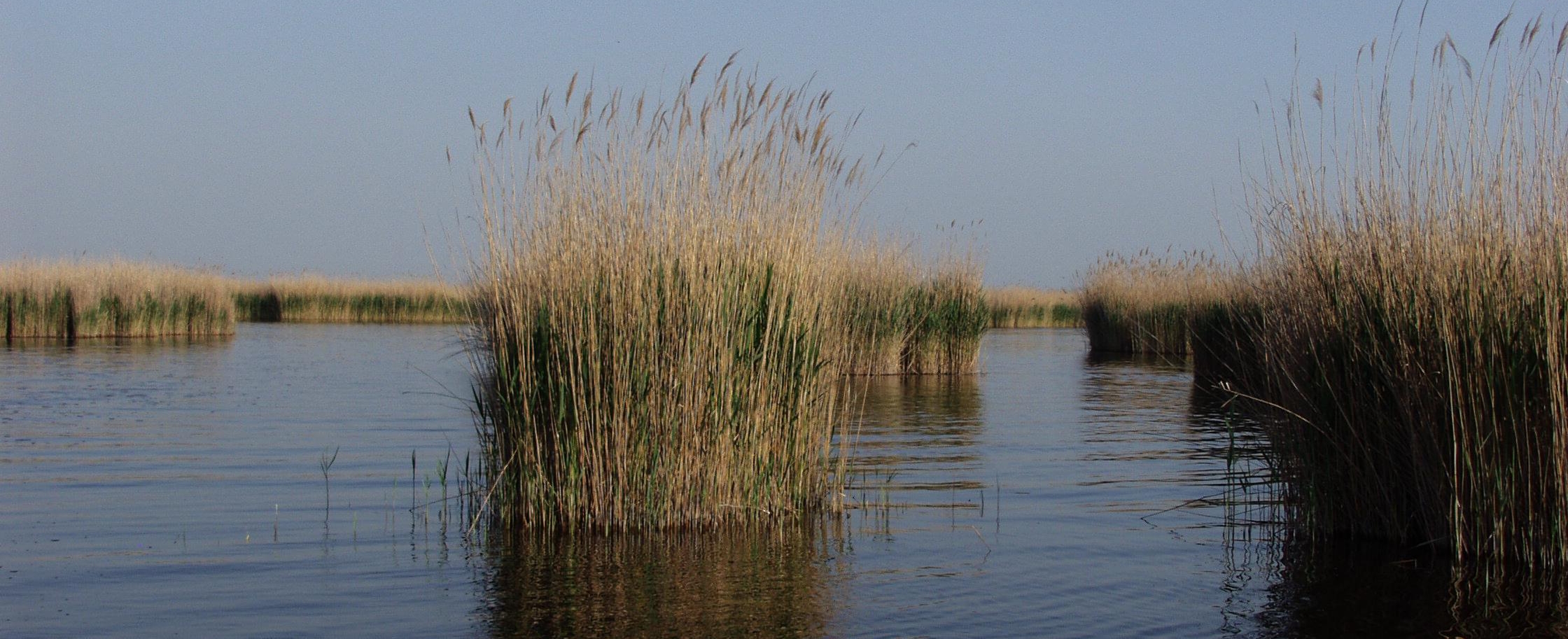Rangers Congress – Exploring new approaches to conserving nature
From the 9th to the 13th May, Rangers will be gathered in Czech Republic for the 4th European Ranger Congress of the International Ranger Federation. With the theme “Exploring new approaches to conserving nature” Rangers will have a full-packed congress with keynote speakers, field trips, practical workshops and several opportunities to network with their peers from across the globe.
Rangers will be looking at important topics such as health care, environmental education, Natura 2000 and other legally framed protected areas, training for rangers, cooperation, financial challenges, working with volunteers and digital media.
The full Congress programme can be downloaded here.
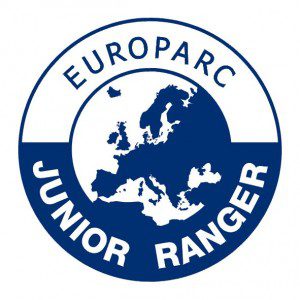
In 2010, EUROPARC and IRF signed a memorandum of understanding to better engage the two networks. EUROPARC, since then, as been actively promoting IRF activities and supporting the work of Rangers across Europe. Hence, the EUROPARC Junior Rangers programme will also be highlighted in the Conference in 3 moments:
- Sára Elion Svobodová, a Junior Ranger from the Litomerice region (CZ) will share her personal experience within the programme
- Carol Ritchie, EUROPARC Executive Director, will make a presentation on Wednesday and a lead a workshop about the programme
Congress Website: www.erc2017.org
Congress venue: Culture Hall, Na Valech 2028, 412 01 Litomerice; Web: www.mkz-ltm.cz
Deadline for registrations: 21st April
About IRF
The International Ranger Federation (IRF) is a non-profit organization established to raise awareness of and support the critical work that the world’s park rangers do in conserving our natural and cultural heritage. In 2010, the EUROPARC Federation and IRF have signed a Memorandum of Understanding to promote the
Founded in 1992, the IRF has a membership of more than 70 ranger associations from more than 50 countries, on six of the seven continents. The role of the IRF is to empower rangers by supporting their national or state ranger organizations, or assisting in the establishment of local ranger associations in countries where they do not currently exist.
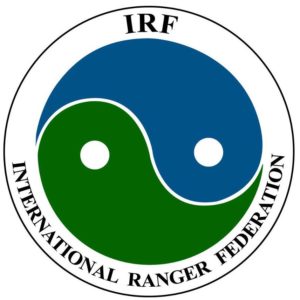
EUROPARC Webinar: Visitor Management in Transboundary Parks
26th April – 15:00
Visitor Management in Transboundary Parks
Tourism is a relevant factor in many European Protected Areas, including Transboundary Parks, with major environmental, social, and economic benefits for people and communities in often very remote regions. In this context, cross-border improvements are needed if we are to ensure low impact on protected area resources, benefits for park neighbours and local communities, and at the same time enhance visitors’ experiences.
On this EUROPARC webinar, we will further explore developments in the field of tourism in transboundary protected areas with key actions taking place, for a high-quality, ecologically compatible and environmentally friendly visitor management.
The webinar will be presented by Luís Monteiro, PhD student at the Czech University of Life Sciences with the thesis “Assessing, managing and monitoring tourism and related impacts in protected areas”. In the past, Luis has worked in the Průhonice Park management department, an UNESCO World Heritage Site in the Czech Republic, where he helped to improve the trail system orientation and interpretation programmes. He is member of the Tourism and Protected Areas Specialist Group from the IUCN WCPA and he is currently conducting an internship at the EUROPARC Federation. He will give an introduction and overview to the topic of visitor management and cooperation across borders framed by the Transboundary Parks Programme.
Two case studies from the TransParcNet, EUROPARC’s network of cross-border protected areas, will be presented:
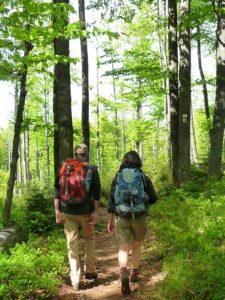
In the Bavarian Forest National Park (Germany), there around 500 kms of marked trails! photo by Maria Husslein
Case Study 1
Plans for a future common visitor monitoring in Bavarian Forest and Šumava National Parks
by Florian Porst, Bavarian Forest National Park, Germany
The area of Šumava and Bavarian Forest National Park is characterised as the largest forest region without human intervention in central Europe. The first Transboundary Certificate between the Bavarian Forest and Šumava National Parks was handed out in 2009.
In the context of an INTERREG (ETZ Bayern-Tschechien) project, both parks will develop a cross border visitor monitoring. The Project runs for a period of three years from 1st January 2017 to 31st December 2019.
Bavarian Forest National Park (DE) has done a basic visitor survey in 2013-2014. Within the project, an equal survey will be done in Šumava National Park (CZ) so it will be possible to compare and merge the data Furthermore, the parks will develop five common survey modules with different themes and each survey will be repeated in a five years regular circle in the future. In addition, it will be established a permanent cross border visitor counting in the whole area of both national parks with automatic counters.
After Studying human geography at Friedrich-Alexander-University Erlangen-Nürnberg (graduation in 2014), Florian Porst started working for the Bavarian Forest National Park Administration in the department of visitor management and visitor information.
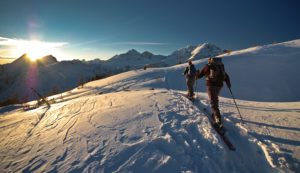
Triglav National Park is the only national Park in Slovenia © Triglav NP archive
Case Study 2
Towards a more sustainable tourism in the Julian Alps: Application of the European Charter for Sustainable Tourism in a transboundary area
by Mojca Smolej, Triglav National Park, Slovenia
Cooperation between Prealpi Giulie Nature Park (IT) and Triglav National Park (SL) dates back to 1996, when the Italian park was established. Partnership between the two protected areas was reinforced by EU projects, which supported relationships among cross-border partners.
In 2009, the Transboundary Julian Alps Ecoregion, which also includes Slovenia’s Julian Alps MAB UNESCO Area, was officially awarded the EUROPARC Transboundary Certificate. Last year, the Parks wanted to give a step further in their cooperation, regarding sustainable tourism and visitor management, so they have applied the Charter Methodology and were awarded with the European Charter of Sustainable Tourism in Protected Areas, becoming the first Transboundary Sustainable Destination. Mojca will tell us about their experience in managing tourism across borders and the outcomes of their joint application of the Charter.
Mojca Smolej, is the focal point for Transboundary cooperation in Triglav National Park, for over 10 years. Mojca has been always involved on tourism development: in the creation of info centers, implementation of tourism-related strategies and promotional actions.
Webinar powered by
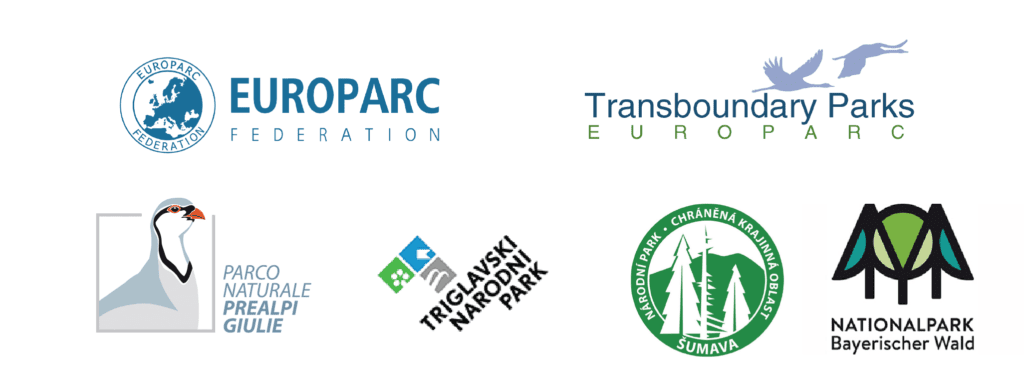
Special series of EUROPARC Webinars on Sustainable Tourism
As a celebration of the International Year of Sustainable Tourism for Development, declared by the United Nations for 2017, EUROPARC is organising a series of 3 webinars on the topic of Sustainable Tourism in Protected Areas.

We will showcase the important role of Protected Areas in the development of sustainable tourism practices that deliver socio-economic benefits to local communities whilst protecting our natural heritage.
In the 3 webinars, good practices from our network of Sustainable Destinations – that have been awarded with the European Charter for Sustainable Tourism in Protected Areas (ECST) – and from our TransParcNet – the network of Transboundary Parks – will be shared.
We will look at practical examples on visitor management, engagement and cooperation with local partners, and outcomes of the implementation of the ECST methodology in several countries.
April: Visitor Management in Transboundary Parks
May: Engaging with local partners for Sustainable Tourism strategies
June: Sustainable Tourism in Marine Protected Areas
Sustainable Agriculture in Protected Areas
Puszta landscape, Hortobagy National Park, Hungary © Foto Dr Gábor Kovacs
Agriculture and livestock breeding are crucial activities for many communities in and around European Protected Areas. What are the challenges Protected Areas are facing in their relation with Farmers? What is the role of Protected Areas in promoting healthier agricultural practices?
At the same time, in European Institutions there is an intense debate about our Common Agricultural Policy (CAP), the set of EU rules aimed at the development of a uniform agricultural sector across the EU. The European Commission launched a public consultation to “Take forward work and consult widely on simplification and modernisation of the Common Agricultural Policy to maximize its contribution to the Commission’s ten priorities and to the Sustainable Development Goals”.
The goal is to summarise available evidence on the performance of the CAP so far, draw lessons from the implementation of the latest reform, have a structured dialogue, confirm what the current difficulties are, and anticipate needs for modernization and simplification of the CAP.
Have your say at the CAP consultation by filling in this online questionnaire, before the 2 May 2017.
Sustainable Agriculture in Protected Areas
At EUROPARC Siggen Seminar 2017, we gathered 20 experts from Protected Areas across Europe and NGOs to have a deeper understanding of the role PAs play in promoting Sustainable Agricultural practices. Below, we share with you the main findings of this Seminar, and in this page you will find all presentations and report.
Generally, agriculture in PAs can either be considered:
- a means to continue protecting specific landscapes and habitats – often related to subsistence Agriculture, marginal rural areas, traditional farming practices. In these cases, PAs need promotion and strengthening of these activities
- having a big negative impact on landscapes and habitats – often related to agroindustry and intensive agriculture.
Of course, several situations can be “in the middle” of these two extremes and there is not a fit-for-all solution. Differing uses of land bring about different challenges and, thus, a deep understanding of the context and main actors at local level is fundamental.
Stakeholders’ expectations, needs, and approaches are also distinct and PAs should take into consideration this aspect to build effective dialogue and partnership.
In the first situation, the park can play an important role in animating the rural areas, promoting and strengthening these activities by providing recognitions/certifications to producers and valorising their products. Moreover, parks can also support small farmers in bureaucracy obligations and simplify administrative procedures. Finally, in some specific cases, the Park can decide to maintain these agriculture activities for biodiversity protection purposes, even when not economically profitable.
In the second situation, when facing intensive agriculture practices, the park should concentrate on monitoring and reduce its ecological impacts. In these cases, the dialogue with farmers at a deep technical level can be very useful to suggest alternative and more promote more nature-friendly practices and techniques.
Challenges for PAs and Sustainable Agriculture
The main challenges for Protected Areas in the relation with farmers are linked to:
- damages caused by large carnivores to domestic animals
- damages caused by wild fauna to crops (eg. deer and wild boars)
Protected Areas play a crucial role in involving the local authorities and engage farmers in implementing prevention measures for domestic animals and crop safety.
Farmers have also been affected by the effects of climate change, air and water pollution. Raising awareness on better environmental practices is a fundamental role for Protected Areas. Organising study tours specifically addressed to the local farmers, who have their crops in and around the PA, is an important step towards breaking the barrier between conservationists and farmers, and can help them learning new environment-friendly practices.
Agriculture and Tourism
Agriculture is strongly connected with cultural heritage, contributing to build tastes, traditions and the local communities’ identity. Thus, there is a link between tourism and agriculture in PAs and the opportunity to reinforce this connection between the agricultural and tourism sectors. The two sectors can have a mutual positive influence, supporting strongly each other, with:
- promotion of local food products,
- development of “farm tourism” packages
- increase visitors’ awareness on rural life and traditions (e.g. several examples of European Charter for Sustainable Tourism in PAs).
Nevertheless, tourism development (especially mass tourism) can have a negative effect, producing conflicts on land usage, abandonment of the agriculture activities, preference to cheaper and industrial food products, etc. Therefore, a wide vision and a coherent governance of the local development in all aspects are needed, to guarantee sustainability and socio-economical advantages for all sectors.
How to develop partnerships with farmers?
Protected Areas can act as positive catalyst of the rural area, promoting dialogue and partnership, coordinating initiatives, launching projects and raising awareness. How to promote the dialogue, and break the barrier between nature conservation and agriculture?
Here some tips arising from our panel of experts at the Siggen Seminar.
– switch from conflict management to alliance building, working on mutual benefits
– consider economical aspects but also cultural and socio-psychological components as the emotional bond of farmers with their territory: partnership is a matter of “people”
– knowledge and information both on socio-economic and environment are needed
– importance to involve farmers in decision making from the beginning
– privilege bottom-up processes
– promote mechanisms like consensus decision making
– partnership is important not only between PAs and farmers but also to build network among farmers themselves
– other alliances can be very useful: media, landowners, other organisations (e.g. Sloow food), other actors (e.g. “haute cuisine” chefs)
– there is a risk in promoting new labels, too many already existing
– look for positive experiences, as the agri-environmental schemes
– must remain a voluntary approach
For more information about Sustainable Agriculture please contact s.petrosillo @ europarc.org.
Workshop – Management of Natura 2000 sites
Alluvial forest, Fertő-Hanság National Park © Gábor Takács
Management of Natura 2000 sites in Central and Eastern Europe
3-5 May, 2017, Fertőújlak, Hungary
EUROPARC Central and Eastern Europe (CEE) is organising a workshop for Protected Area professionals on the topic of Natura 2000 management, in partnership with the Fertő-Hanság National Park Directorate (Hungary).
Designation of Natura 2000 sites in countries of the East and Central European region was done more than 10 years ago. The relatively long time passed since then enables us to evaluate the process of designation and actions done for the conservation of Natura 2000 values.
Between 3-5 May 2017 Europarc CEE and the Fertő-Hanság National Park Directorate (Hungary) organise a workshop to review the management of Natura 2000 sites and summarize experiences.
Main topics discussed:
- Implementation of Natura 2000 in different countries
- Preparation of management plans for N20000 and their harmonisation with management plans for nationally designated areas, main challenges of the process and current state of play
- EU Agricultural subsidies vs Natura 2000 aims
Participants
The target audience involves mainly EUROPARC members, especially those of the CEE Section, as well as representatives of organisations dealing with management of Natura 2000 sites in the region.
Registration
To register please fill in and submit the application form to the following address: barna.csilla@fhnp.hu. Deadline for registrations on the 15th April.
Costs
Participation in this workshop is free of charge for 30 persons – expenses are covered by the EUROPARC Federation and the Hungarian Ministry for Agriculture – but you will have to cover your own travel expenses.
Due to limits of capacity, there is room for additional 10 people if they cover their own expenses (105 EUR/person).
More information and Programme
Please download the draft programme and get to know further information about location, accommodation and field trips.
If you need more information please contact Gábor Takács – takacs.gabor@fhnp.hu.
